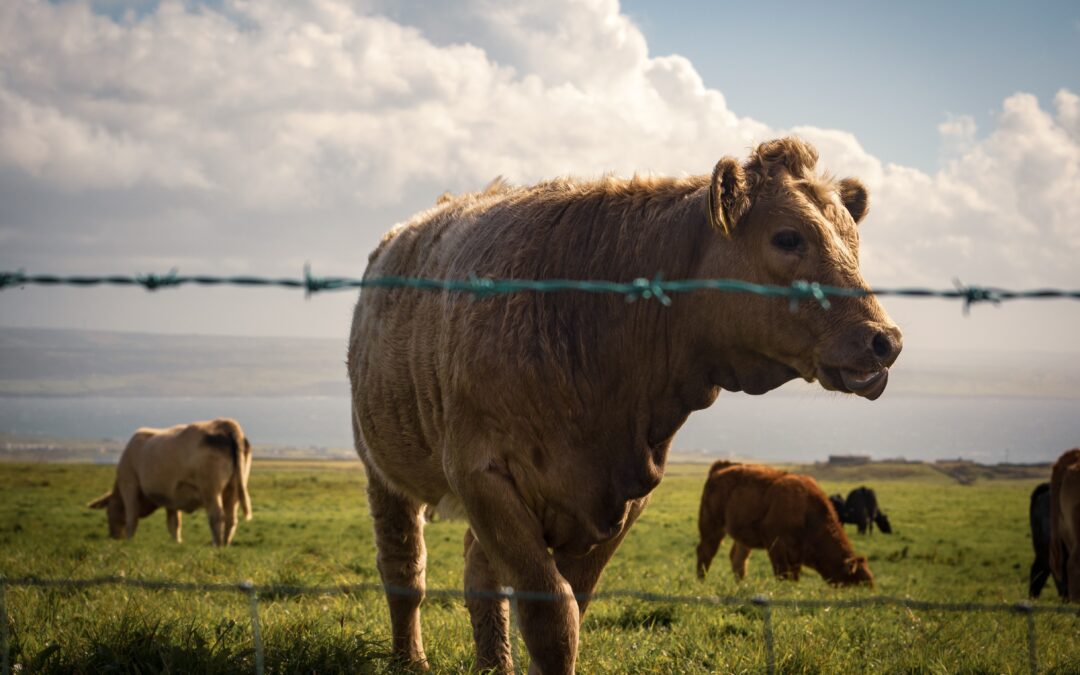The daily life of cows will play a big role in our latest innovative project using low cost, high density probes to assess water quality and quantity.
We have been awarded £80k of funding via the Sustainable Innovation Fund from Innovate UK to lead, with Duchy College, Glas Data and Ver Facil, the next agricultural revolution in measuring environmental, social and welfare parameters across the farming landscape.
The Innovate UK funding is part of our Cow to Catchment project which will implement a variety of sensors to telemeter key components of the rural farming ecosystem, helping to understand and quantify the movement of inputs and outputs. This includes the monitoring of individual cow health, herd dynamics, feed and water inputs, waste management, soil health and river water quality and quantity.
The ambition is to create an internationally recognised hub for monitoring, via probes, a wide suite of rural data, which is vital in influencing future agricultural payments schemes. It will also allow for the integration of outcome-based payments for water quality, flood risk protection, carbon sequestration and ecological connectivity alongside a vastly more quantifiable food production system.
The Duchy College farm and campus in Stoke Climsland, Cornwall, is sited at the top of a natural mini-catchment some 1,300ha in scale and sits alongside neighbouring mixed farms, the village, a sewage treatment work, historic mining and private septic tanks and represents a microcosm of a typical rural catchment ecosystem. Additionally, Duchy College farm (367ha) acts as a both a virtual and physical hub with excellent engagement with the farming sector as well as good road connections to ensure effective knowledge transfer both locally, regionally, nationally and internationally.
At Westcountry Rivers Trust (WRT), we work with thousands of farmers to improve water quality by better understanding and managing farm inputs but we also look to attenuate flood peaks, reduce effect of droughts, store carbon and improve habitats and species while working with farmers to support viability in their farm businesses.
The mini-catchment test bed, with the presence of sewage treatment works, septic tanks and historic mining, will create a template for a roll out of probes to the entire River Tamar via WRT. If successful, the aim is roll it out to the UK as a whole as the technology can be directly applied to all catchments.
Our CEO Dr Laurence Couldrick said: “Duchy College has already set up a virtual network across the catchment in order receive remote data from hundreds of real time probes, measuring everything from individual animal health and movement, animal weight, feed and water usage, waste levels and soil moisture.
“However, there are gaps in the water quality and quantity data in all streams and tributaries as the current probes are not robust enough as they require more extreme adaptation compared to adapting probes for use in the barns and in the field.”
To remedy this, WRT and Ver facil are adapting and ruggedising off-the-shelf low cost sensors as well as new to market LoRaWAN devices, such as probes designed for factory sensing of water temperature, water level, Dissolved Oxygen, Conductivity, Acidity, and Turbidity.
At WRT, we have assessed the current market, and actively employ all these devices across our operations from the use of citizen scientists to collection of samples to send off for laboratory assessment. Very few monitoring tools can be telemetered for live data and of the current market these are expensive, often limiting how many can be deployed at any time.
The new probes will be designed to be sufficiently cheap to give real time data at a far greater density than currently available at similar cost. It allows for live tracking of water quality events as well as showing how each stream responds to high rainfall events and in turn impact on flooding and drought.
The data collected will be displayed on a Cow to Catchment Monitoring Hub showing sensor location in partnership with Glas Data and live data feeds, where data can be accessed and analysed allowing for live decision-making and alerts, forecasting and identifying issues and framing future non-produce environmental payments.
Innovate UK, as part of UK Research and Innovation, is investing up to £191 million to fund single and collaborative research and development projects as part of the Sustainable Innovation Fund over the next two years. The aim of these competitions is to help all sectors of the UK rebuild after the effects of COVID-19.
Innovate UK Executive Chair Dr Ian Campbell said: “In these difficult times we have seen the best of British business innovation. The pandemic is not just a health emergency but one that impacts society and the economy.
“The Westcountry Rivers Trust and Duchy College Cow to Catchment project, along with every initiative Innovate UK has supported through this fund, is an important step forward in driving sustainable economic development. Each one is also helping to realise the ambitions of hard-working people.”
The Sustainable Innovation Fund is funding 1,103 projects, 1189 UK businesses and totals over £130 million in support across the UK.

